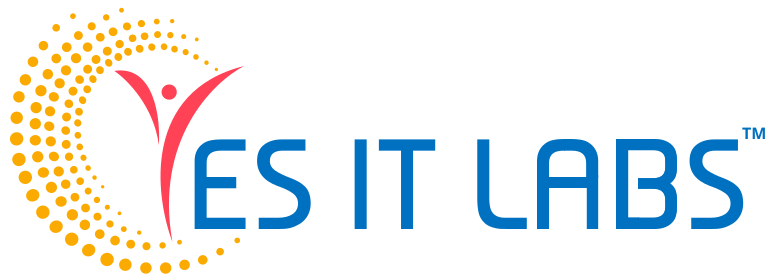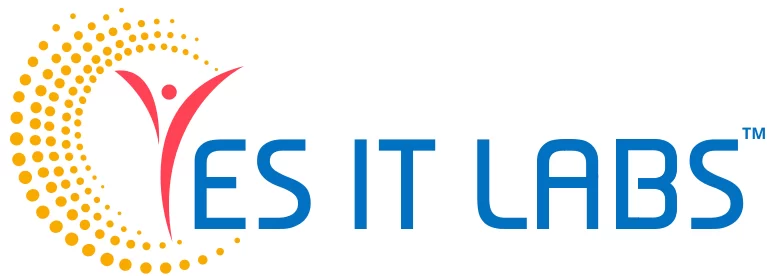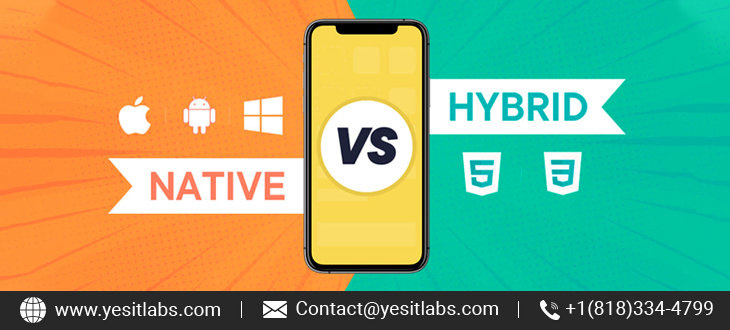When planning to build a mobile application, one of the first major decisions you’ll face is choosing between native vs hybrid app development. This choice significantly impacts your app’s performance, user experience, development cost, and time-to-market. While both approaches have their strengths and weaknesses, understanding their differences will help you determine the best fit for your project.
In this article, we will dive deep into the differences between native and hybrid apps, their pros and cons, and how they impact the overall development process and app performance. We will also incorporate industry insights and expert recommendations to help you make an informed decision.
Native vs. Hybrid App Development: Understanding the Difference
What is a Native App?
A native application is built specifically for a single platform, either iOS or Android. These apps are developed using platform-specific programming languages—Swift and Objective-C for iOS, and Kotlin or Java for Android. Because native apps are tailored to the platform, they provide seamless integration with device hardware and ensure optimal performance.
Due to their strong performance capabilities, native apps are widely used by large-scale businesses that require high-performance applications. Many leading companies, including top tier mobile app development company in USA, prefer native development for applications that demand intensive processing, gaming, or real-time functionalities.
What is a Hybrid App?
A hybrid app is essentially a web-based application wrapped in a native container. These apps use web technologies like HTML, CSS, and JavaScript, combined with frameworks like Ionic, React Native, or Xamarin. Unlike native apps, hybrid apps share a single codebase that can be deployed across multiple platforms, making them a cost-effective and faster solution for cross-platform development.
Hybrid apps are particularly advantageous for businesses looking to enter the market quickly with a minimum viable product (MVP). Companies that offer android app development services in USA often recommend hybrid apps for businesses seeking cost-effective solutions that do not require heavy hardware integration or complex native features.
Pros and Cons of Native App Development
Advantages of Native Apps:
- Optimized Performance: Native apps are built specifically for iOS or Android using platform-specific programming languages like Swift, Kotlin, or Java. This deep integration allows them to fully utilize device hardware, resulting in fast load times, smooth performance, and responsive interactions. This makes them ideal for demanding applications such as gaming, finance, or real-time data processing.
- Enhanced User Experience: By following platform-specific design guidelines, native apps offer an intuitive and seamless user interface. iOS apps align with Apple’s Human Interface Guidelines, while Android apps follow Material Design principles, making the experience more engaging and natural for users. This improves user satisfaction and retention.
- Access to Device Features: Native apps have direct access to all device features, including GPS, camera, notifications, and biometric authentication. This is especially beneficial for apps requiring high functionality, such as navigation tools, mobile banking, or media applications, without relying on third-party plugins.
- High Security: With platform-specific security protocols, native apps provide stronger data protection. They support encryption, secure authentication, and regular security updates, making them a preferred choice for industries handling sensitive information, such as healthcare and finance.
- Offline Functionality: Unlike web-based or hybrid apps, native applications can store data locally, enabling them to function offline. This is useful for note-taking apps, offline maps, and games, ensuring uninterrupted usability even in areas with limited connectivity.
Disadvantages of Native Apps:
- Higher Development Cost: Developing native apps requires creating separate versions for iOS and Android, each using its respective programming language (Swift for iOS, Kotlin/Java for Android). This means businesses must invest in two development teams or hire developers skilled in both platforms, increasing overall costs. Additionally, licensing fees, infrastructure costs, and ongoing updates add to the financial burden.
- Longer Development Time: Since native apps require distinct codebases for each platform, developers must write, test, and optimize code separately for iOS and Android. This results in longer development cycles compared to hybrid apps, which use a single codebase. The additional time needed for debugging, optimization, and compliance with platform-specific guidelines further extends the timeline.
- Complex Maintenance: Maintaining a native app involves updating and troubleshooting two separate codebases, which can be resource-intensive. Bug fixes, feature enhancements, and security updates must be implemented independently for each platform, requiring continuous monitoring and development efforts. Moreover, any changes must align with evolving operating system updates from Apple and Google, adding another layer of complexity.
Pros and Cons of Hybrid App Development
Advantages of Hybrid Apps:
- Faster Development: Since hybrid apps use a single codebase that works across multiple platforms, developers can build and deploy applications much faster than native apps. This streamlined development process reduces redundant work, allowing businesses to launch their apps quickly and gain a competitive edge in the market.
- Lower Costs: Building a hybrid app is more cost-effective than developing separate native apps for iOS and Android. With one codebase to maintain, businesses save money on development, testing, and maintenance. This makes hybrid apps an attractive option for startups and companies with limited budgets that still want to reach a broad audience.
- Easy Updates: Hybrid apps do not require approval from app stores for every update, making it easier to release bug fixes, security patches, and feature enhancements. Since the majority of the app runs on web technologies, updates can be pushed instantly, ensuring users always have access to the latest version without needing to download frequent updates.
- Cross-Platform Compatibility: One of the biggest advantages of hybrid apps is their ability to run on both iOS and Android without requiring major modifications. This ensures a wider reach with minimal extra effort, allowing businesses to target a diverse user base without maintaining separate applications for each platform.
Disadvantages of Hybrid Apps:
- Performance Issues: Hybrid apps depend on web technologies to function within a native shell, which can lead to slower performance compared to native apps. This is especially noticeable in high-performance applications such as gaming or apps with heavy animations, where responsiveness and speed are critical.
- Limited Access to Native Features: While hybrid frameworks offer plugins to access native device functionalities like GPS, camera, and notifications, they do not provide the same level of efficiency as native apps. Some advanced features may require additional customization, leading to increased development effort and potential performance bottlenecks.
- Compromised User Experience: Since hybrid apps use a common design across platforms, they may not fully align with platform-specific user experience guidelines. This can lead to inconsistencies in navigation, UI elements, and overall responsiveness, making the app feel less intuitive for users accustomed to platform-specific designs.
For businesses seeking an iOS mobile app development company, hybrid development may provide a cost-effective alternative while maintaining a consistent user experience across platforms.
Choosing Between Native and Hybrid App Development
Your decision between native and hybrid development should be based on your business goals, budget, and app requirements. Here are some key considerations:
Choose Native App Development If:
- Your app requires high performance and responsiveness.
- You need deep integration with device features like GPS, camera, and notifications.
- Your app should function smoothly offline.
- Security is a top priority, such as for financial or healthcare apps.
- You want a premium, platform-specific user experience.
Choose Hybrid App Development If:
- You need a cost-effective solution with a faster time-to-market.
- Your app does not require complex animations or intensive processing.
- You already have a web-based platform and want to extend it into a mobile app.
- You want to maintain a single codebase for multiple platforms.
- You prefer faster updates without app store approvals.
Cost Comparison: Native vs Hybrid App Development
| Factor |
Native Apps |
Hybrid Apps |
| Development Cost |
Higher (Separate codebases) |
Lower (Single codebase) |
| Performance |
High |
Moderate |
| User Experience |
Excellent |
Good |
| Development Time |
Longer |
Shorter |
| Security |
Strong |
Moderate |
| Device Features |
Full Access |
Limited Access |
Final Thoughts
Both native and hybrid apps come with unique strengths and limitations, making the decision largely dependent on your project’s goals, budget, and technical requirements. Native apps excel in performance, user experience, and seamless integration with device-specific features, making them the preferred choice for businesses that prioritize speed, security, and advanced functionalities.
However, they require higher development costs and longer timelines. On the other hand, hybrid apps provide a more cost-effective and faster development approach, allowing businesses to deploy across multiple platforms with a single codebase. While they may not offer the same level of performance or deep hardware integration as native apps, they are ideal for companies looking to quickly enter the market with a functional and scalable product.
If you’re unsure about the best approach for your project, consulting with an experienced development team can help you evaluate your app’s requirements and choose the most effective solution for long-term success.








